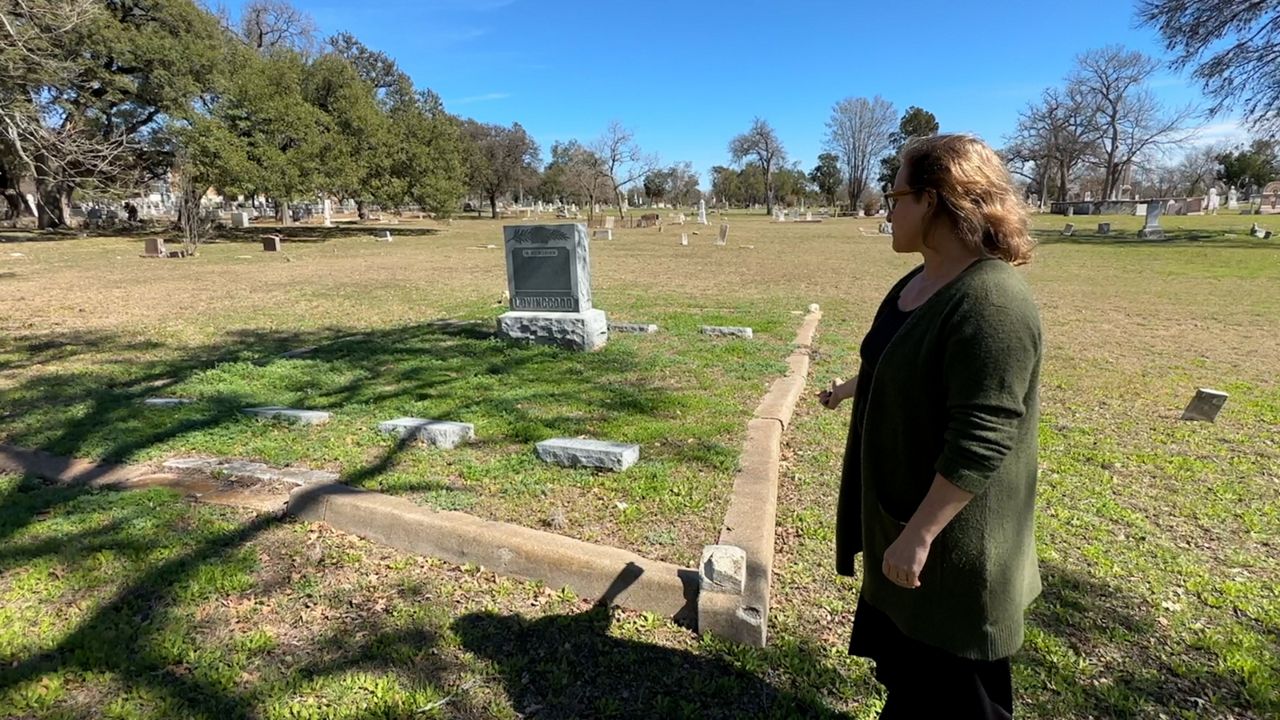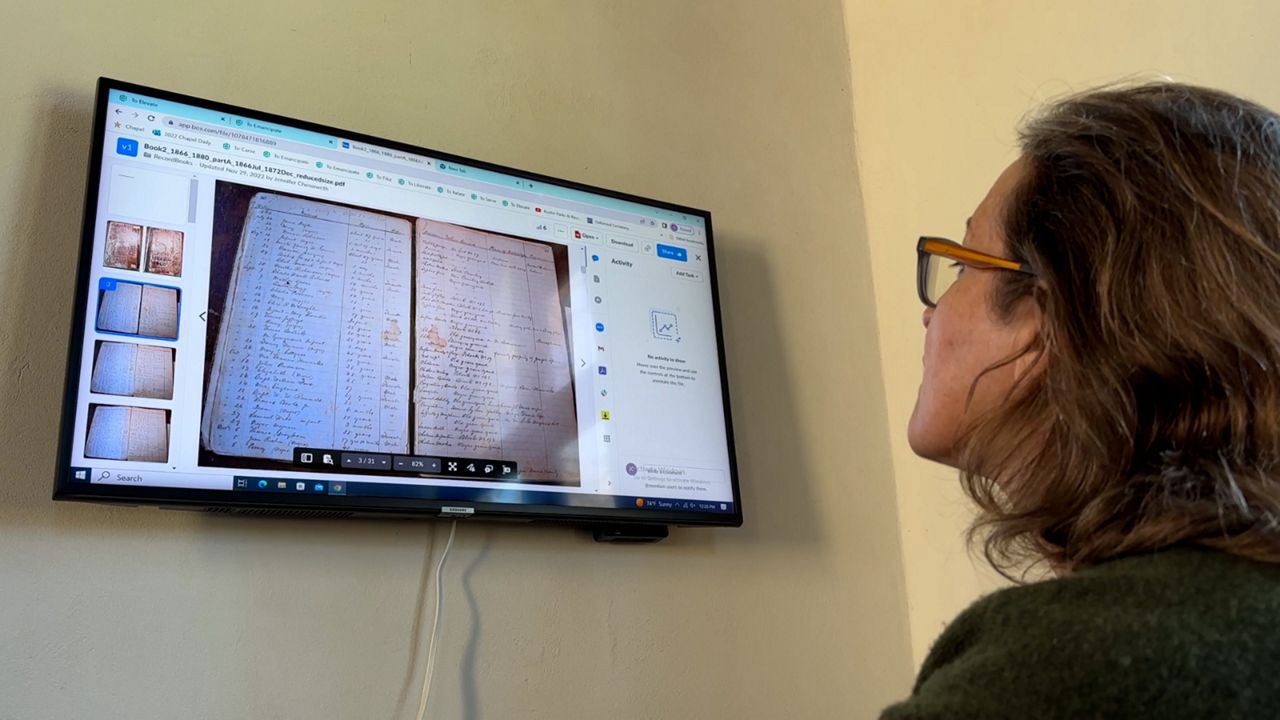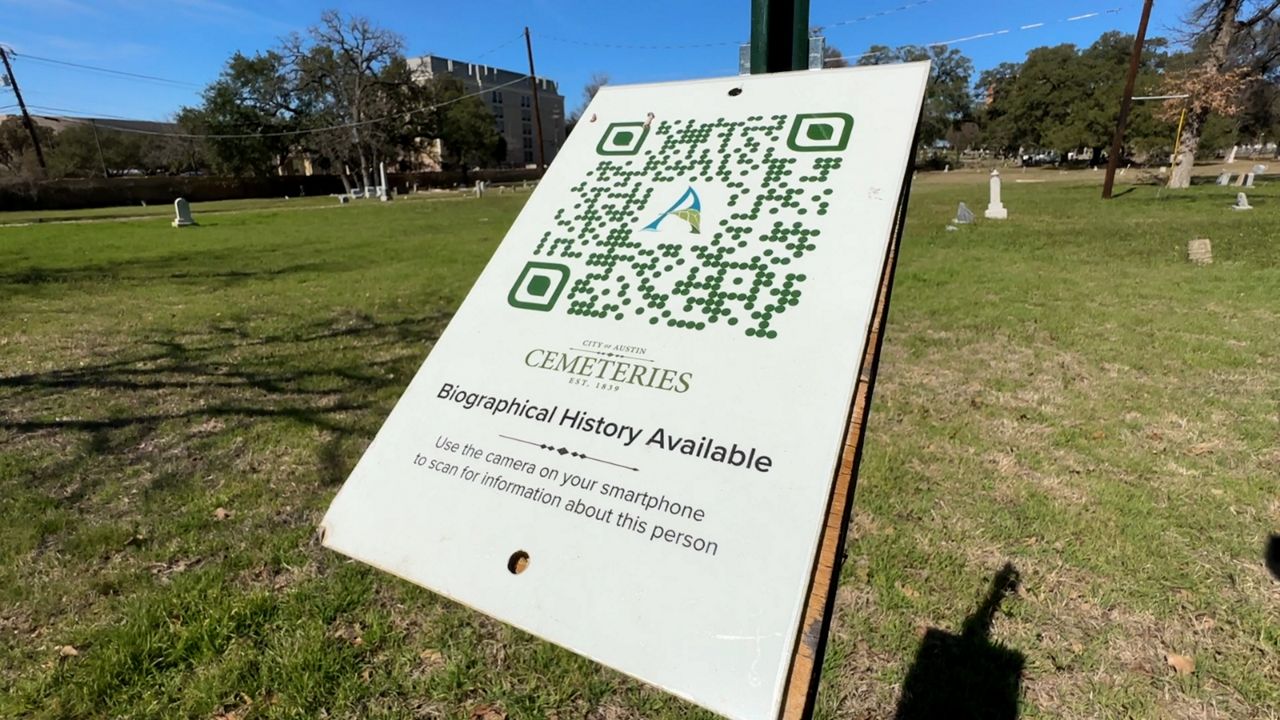AUSTIN, Texas — Preservationists are hard at work trying to uncover and salvage Black history in Austin. Austinite Lydia Moore credits early lessons from her great-grandmother for learning to appreciate history by tracing its roots.
“History is here, not just in a book,” Moore said. “She would always take me to the cemetery. The first generation after slavery, she thought it was so important that we have reverence for those persons that come before us.”
The longtime Austin educator now serves on the board of Save Austin’s Cemeteries, a nonprofit organization which preserves and educates at public final resting places like Evergreen Cemetery.
“We have new paved roads throughout the cemetery, so you have access where you need to go,” Moore said. “We’ve also installed biographical histories for the people here so you can learn their significance.”
With the African American population sitting at less than 8% in the Capital City, according to the U.S. Census, time is critical to catalog and document the history of communities of color across Central Texas.
“This history if it’s gone, we can’t get it back, so it’s important we stay on top of it,” Moore said.
Oakwood Cemetery Museum site coordinator Jennifer Chenoweth is also unearthing vital pieces of history.

“I feel robbed. I know they feel robbed, so want to do what I can to share this information,” Chenoweth said. “We’re currently auditing the unknown grave location of over 5,500 people.”
Thanks to the National Endowment for the Humanities grant, this team of preservationists has created 3D digital histories of many vital members in the historic colored grounds.

“There are believed to be more than 3,000 people buried in this area that families currently can’t visit or grieve,” Chenoweth said.
One of the state’s oldest cemeteries is home to numerous key contributors to Austin, including one of the early founders of Huston-Tillotson University, Reuben Shannon Lovinggood.
“This is a pretty prominent monument in this cemetery, especially in this section, and previously nobody had researched who this person was,” Chenoweth said.

As the city of Austin grows and its identity changes over time, those on these hollowed grounds want to emphasize all the people that made it what it is today.
“Ancestors, family members had a part in making it a better place to live for everybody. I think that’s important,” Moore said.






